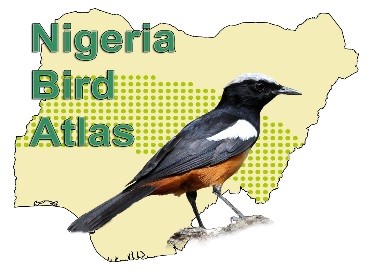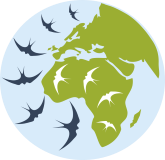Update: please find the annual report for 2016 here!
Knowledge about the distribution of bird species in Nigeria has historically been presented in detailed checklists such as “The Birds of Nigeria” by Elgood et al. (1993), "Birds of Africa" etc. However, over the last 50 and especially during the last 20-30 years, the environment in Nigeria has gone through great changes mainly due to increase in the human population. This has increased the pressure on birds and other biodiversity and has certainly also impacted the distribution of the country's avifauna. A more recent and updated assessment of the distribution of the country's biodiversity is thus not only important but also very urgently needed.
In response to this need, the A.P Leventis Ornithological Research Institute (APLORI) along with other organisations such as Nigerian Conservation Foundation (NCF) are collaborating to use a more “modern approach” to map the distribution of birds in Nigeria. The technical support for this “modern approach” is been provided by the Animal Demography Unit (ADU) at the University of Cape Town who successfully run the Southern African Bird Atlas Project (SABAP). The methodology for Nigeria is also being designed to take into account the peculiar challenges for the country such as its big area and the few ornithologists that we have in Nigeria.
The Nigerian Bird Atlas Project (NIBAP) will be run by APLORI, together with NCF and other interested parties. A team will be responsible for the day to day running of the project and to carry out fieldwork. The NIBAP will be part of APLORI research agenda and will be overseen by the APLORI management.
The primary aim of the project is to determine the distribution of all bird species, including migrants, which will to be published in a bird atlas for Nigeria. The project also aims to further improve capacity as well as increase conservation awareness by engaging students and citizen scientist in the country. The over 80 APLORI MSc Alumni (including about 10 who have gone ahead to complete their PhDs) are all set to play a key role in making this project a success.
You can follow the progress of the project on our website
Or on our Facebook group, Nigerian Bird Atlas
For more information, write to ottosson[@]pt.lu
Ulf Ottosson

